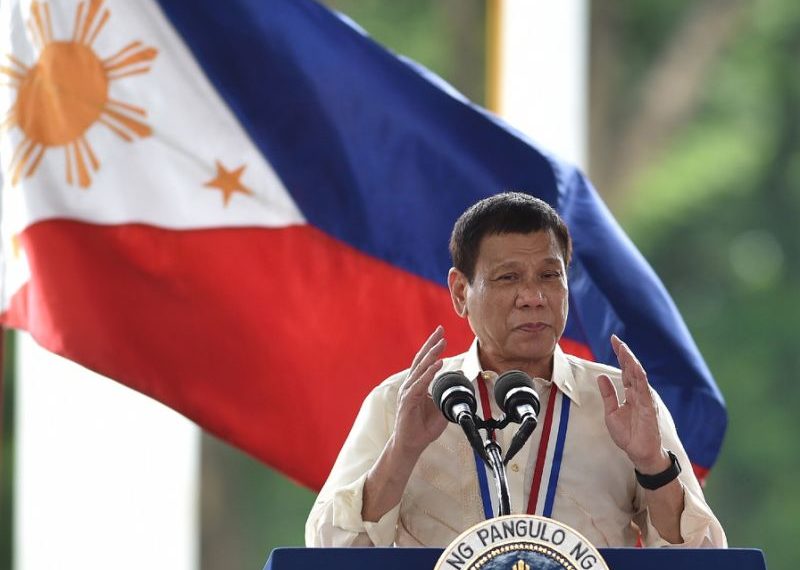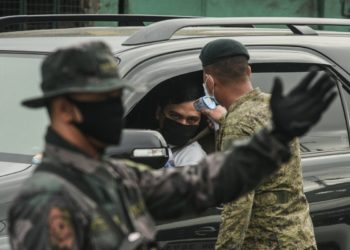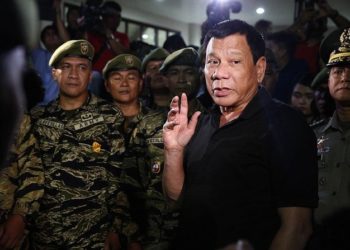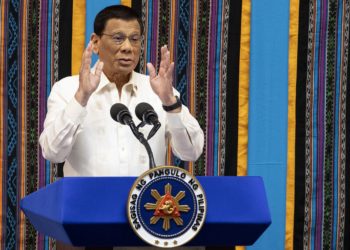About sixty million Filipinos voted in midterm elections earlier this month, with thousands of government posts on the ballot, including half of the country’s 24-seat Senate. The prediction of a massive victory for hard-liner President Rodrigo Duterte came true, and pro-Duterte candidates secured 9 out of 12 Senate seats. While the West often sees the Philippine president as a villain, an impressive 79 percent of adult Filipinos said they were satisfied with the president in the first quarter of 2019.
One of the often-cited reasons behind Duterte’s popularity is his “political will” and perceived success rate of implementing policies. His tone and rhetoric, as described and understood in international media, is harsh and buffoonish, but this is something that many Filipinos have leniency with as the people covet a strong leader.
As with many populist leaders around the world, Duterte is backed by skilled propaganda machinery that peddles the administration’s narrative through social media and other sources; claiming responsibility for everything positive and blaming others for whatever goes wrong.
Duterte’s Popularity
Internationally, or at least in the West, support for Duterte is seen as odd. The West focusses on Duterte’s often outlandish statements, “jokes,” and policies. Many of these “jokes” are aimed at the domestic audience and get lost in translation. The Filipinos, on the other hand, see increased spending on infrastructure, poverty reduction, and combatting of crime and corruption.
Economic growth is another key factor behind Duterte’s popularity. The average growth rates are the highest in several decades. Furthermore, Duterte actually put his money where his mouth is, whether it is his stance on crime or closing down one of the most popular tourist destinations, the island Boracay, for being a “cesspool.”
When speaking to regular Filipinos that support Duterte – old enough to remember – parallels are often drawn with the days of the late President Ferdinand Marcos, who ruled the Philippines from 1965 to 1986. Many speak of these days with an air of nostalgia similar to that of Brexiteers or Russians reminiscing about the Communist times. Despite all the negative aspects of Marcos’ dictatorship, they still think the country was better and more stable under the strong leader, explaining why they now also favor Duterte.
Perhaps the reason of Duterte’s popularity is as simple as many Filipinos yearning for an authoritarian leader who does not have the nuisance of dealing with the corrupt political institutions and democracy hindering progress.
Future of Democracy in the Philippines
In the coming months and years, the future of Philippine democracy will be decided. The Duterte administration now has a straightforward way of consolidating power and pushing through its style of governance and reforms.
Duterte will push for changing the constitution, moving to a federal state system, and continuing the contentious “war on drugs.” This will likely mean a weakening of the country’s democratic institutions down the slippery slope of authoritarianism. Critics who have spoken out against Duterte have received threats and others, such as senator Leila de Lima, have been jailed on drug-trafficking charges.
President Duterte has plunged the Philippines into its worst human rights crisis since the dictatorship of Marcos. His “war on drugs” has killed 12,000 people. https://t.co/AiixWKe4Mk #Rights2018 pic.twitter.com/bo0WmyIUbk
— Human Rights Watch (@hrw) January 19, 2018
Duterte has released so-called narco-lists with names of “drug personalities” with the explicit purpose of dissuading people from voting for them. The latest was released just before the elections. These lists are, of course, also a way to intimidate and scare opponents to silence.
Whether this means that the one-term limit of the presidency and other elected positions are history remains to be seen, but it would be a natural step although Duterte has repeatedly denied this. However, in a country beset by political dynasties – three of Duterte’s four children were elected mayor, vice mayor, and representative in Congress – the road for the continuation of the Dutertes lays open.
The double standards of being against (Manila-)elitism and political dynasty while at the same time creating and supporting it is neither strange nor likely something that will worry or be opposed by the Filipino people.
War on Drugs and Martial Law
Moreover, the “war on drugs” will continue, and if the death penalty is brought back as expressed by Duterte, it will become even bloodier.
Duterte’s hardline stance on the peace process with the Maoist insurgency New People’s Army will most likely also continue, now strengthened by the massive support of the people and control over the Senate.
Martial law was declared on the island of Mindanao in 2017 when ISIS-affiliated militants seized control over Marawi City. Congress extended martial law three times since and is currently extended until year-end to put an end to the ongoing rebellion in Mindanao. Critics of martial law are citing human rights violations, but this critique is falling on deaf ears. The current zeitgeist in the Philippines is permissive of such human rights violations; grouping it with the “war on drugs.”
The current climate of impunity in the Philippines is only going to get worse.
Disclaimer: The views and opinions expressed here are those of the author and do not necessarily reflect the editorial position of The Globe Post.




















